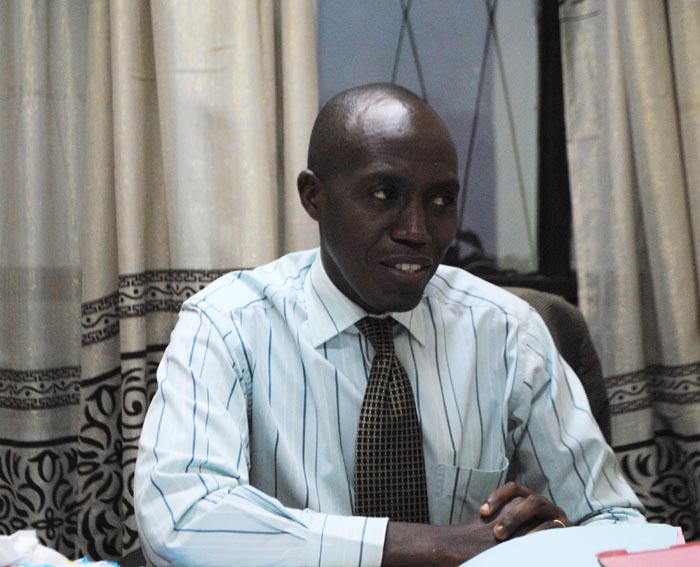Mitigating measures are taken to increase resilience to climate change.-By Diane Uwimana

Joseph Nduwimana: “We can’t do anything against climate change. The seasons are unpredictable.” ©Iwacu
Evariste Sinarinzi, a civil servant at the Burundi Geographical Institute (IGEBU) and a Water and Climate Change Expert, indicates that during several years, IGEBU observed that the length of the rainy season was the same as the dry season. “Due to climatic disturbance, the period of dry and rainy seasons are now both six months”, Evariste Sinarinzi remarks. He mentions that the rainy season used to last eight months while the dry season was four months. “This situation confuses farmers. We must help them to prepare to be resilient to climate change. For instance, they can cultivate stronger plants which are resistant to climate change”, he points out.
In Sinarinzi’s point of view, the short dry season observed in January tends to disappear; instead the dry season lasts until the end of April.
He feels that farmers and the Ministry of Agricultural and Livestock should be aware of the situation and implement strategies to improve resilience to climate change. “Farmers should be organized, avoid traditional systems of cultivation and adopt some modern techniques. To help them, IGEBU should provide day to day information about the meteorological forecasting”, Sinarinzi suggests.
“Seasons are unpredictable”
Joseph Nduwimana, the Permanent Secretary in the Ministry of Agriculture and Livestock indicates that the Ministry does not refer to the IGEBU forecasting when discussing and implementing strategies to increase resilience to climate change. “We can’t do anything against climate change. The seasons are unpredictable”, Joseph Nduwimana acknowledges. He indicates that forecasts given by IGEBU are not reliable, because the institution bases its prediction on information from regional forecasting agencies.
However, the Permanent Secretary ensures that mitigating measures are taken.
“The Ministry is engaged by preparing wetland in order to increase the surface of fields for cultivation, after the rainy season. Also, hillside irrigation is among the main activities organized by the Ministry. Also, we try to create and develop water storage facilities for rainwater in the whole country”, Nduwimana mentions.
—————————————————————————————————————————————
According to Evariste Sinarinzi from the Burundi Geographical Institute (IGEBU), we can expect:
-An increase of rainfall varying from 3 to 10% for the rainy months of November-April
-A decrease in rainfall of 4 to 15% during the months of May to October
-An almost ten-year cyclical variability of rainfall
– A trend of rainfall pronounced upward from the mid-2030s
-The dry season will be increasingly long 6-7 months.
-The change in rainfall reflects on the hydrological regime which will be characterized by a widespread decline.


















 IWACU Open Data
IWACU Open Data

